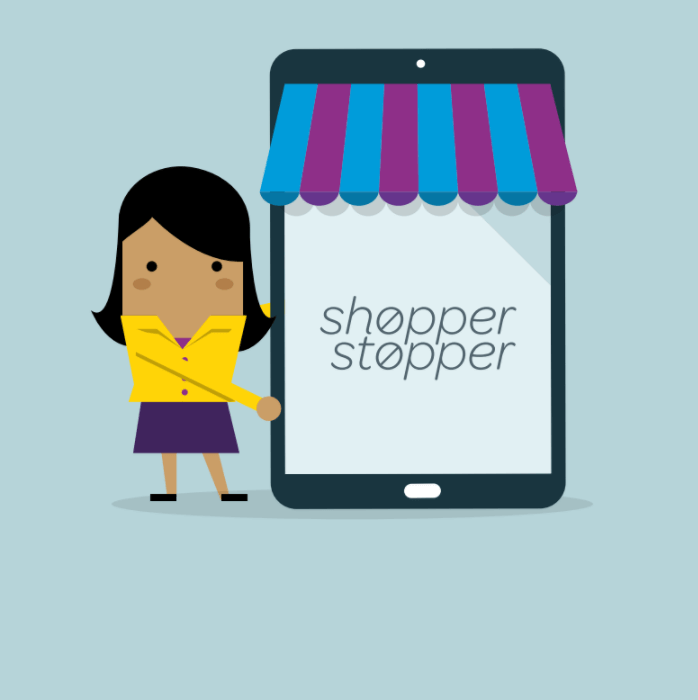
Nic Murray, Research Officer, Money and Mental Health
The case for online retail controls - what we’ve learnt from the Shopper Stopper pilot
It’s late at night and you can’t sleep. The high streets are deserted and the shops are closed, but online there are an endless number of stores to browse and goods to purchase. This can prove a helpful distraction, but if you have difficulty managing the impulse to shop or understanding the potential impact on your finances, the ability to spend easily online can quickly lead to financial harm. We’ve heard from many people with mental health problems who have had similar experiences.
“The adrenalin pumps inside me, and makes me feel good, so making these stupid purchases is exciting, and with the conditions I have with my health, I don’t have excitement in my life.”
On the high street, the wait in the queue gives you time to consider whether you can afford a purchase, the shops closing at 6pm puts a time limit on your shopping, and heavy bags serve as a reminder of how much you’ve bought. But ‘one-click’ purchases, shops storing card details for repeated purchases and 24/7 access to stores mean that these barriers just aren’t there to protect people from harm in an online environment.
Building barriers back online
Together with our technology partners, Plexus, we designed and piloted the Shopper Stopper, an online tool which provided people with the ability to close online shops at times of their choosing. Users who signed up to the tool were able to block specific online shops they found problematic, or limit all online spending during a certain time window. When a user tries to access a shopping site outside of these hours the web page is blocked, and the user sees a message to remind themselves why they set it up, suggestions for other things to do instead of shopping and signposting to support with finances and mental health.
Over the nine month period of the trial it was clear there was both an appetite for and interest in these personalisable online tools from consumers. Over 300 users engaged with the Shopper Stopper pilot, and nearly half of the 12 million consumers with mental health problems in the UK say they would like to set controls like spending limits in online shops.
“After a month I felt strong enough and grew in confidence with the realisation that I could DO something about my money problems… now I am able to ask myself before any online purchase whether I NEED the item or not and whether it will cause me financial difficulties if I buy it.”
An effective way to reduce compulsive spending
Placing a block between people and sites they found problematic was the first step for many users to gaining greater control of, and confidence in, their financial situation. On 85% of occasions that users tried to visit an online shop outside of its ‘opening hours’ they navigated away from the block page – rather than trying to get around it. In the first couple of months of the trial, more than a quarter of users (26%) clicked through to money advice from the block page.
But the Shopper Stopper has its limitations. It can be uninstalled, will only ever reach a fraction of consumers, and now that the pilot has ended it is no longer available at all. We believe there is a role to be played by online retailers, internet service providers and financial services firms to help build back this control to our online spending environment, and are calling on them to take the following three steps to support and protect consumers online.
Add friction to online transactions
Allow customers to delay the processing or require second approval of purchases – for example, asking a customer to approve night-time shopping in the morning.
Limit harm from compulsive spending
Allow customers to set daily, weekly or monthly spending limits on online retail accounts or payment cards.
Let customers control the risks they face from online retail
Customers should be able to opt out of targeting marketing, block certain types of purchases on their card or freeze payment cards at set times. If required they should also be able to block online retail completely at the level of their internet service provider.
In the more immediate-term, extending the life of the Shopper Stopper would be an effective way of providing support to people struggling with impulse spending. Money and Mental Health would welcome conversations with organisations interested in continuing the Shopper Stopper journey.
Sound like the Shopper Stopper could help you?
If it sounds like you could benefit from being able to put barriers between yourself and online retail sites, but didn’t get the chance to take part in the trial, there are still tools you can use. We have put together a list of tools that work in a similar way to the Shopper Stopper which you can view here.
Following the publication of the evaluation report, we wrote to the Chief Executives of 32 leading financial services and retail firms to call on them to implement new spending controls. Read the letter and list of recipients here.
